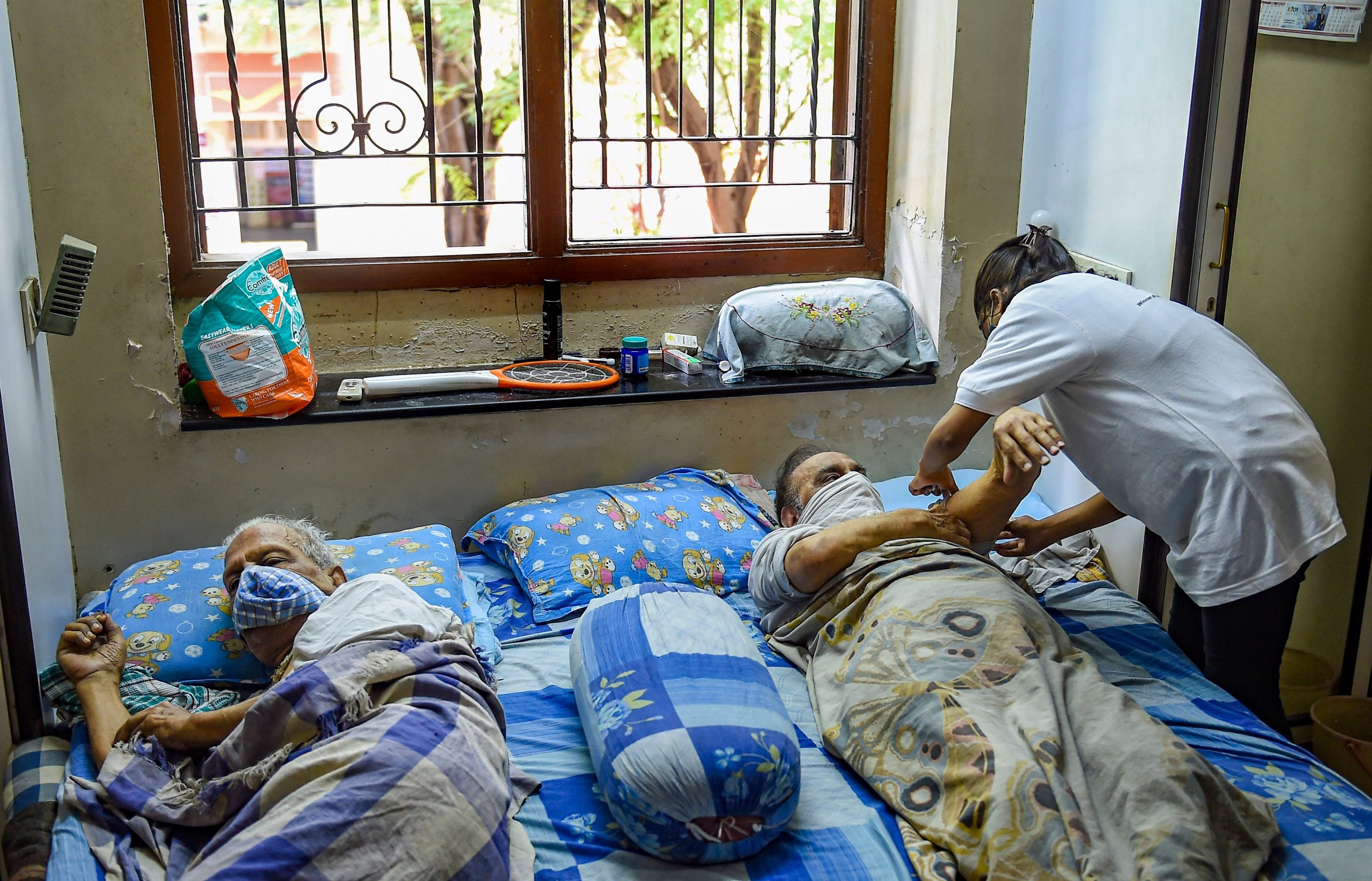The deadly COVID-19 virus is highly transmissible and it primarily spreads through mucus and droplets expelled by coughing or sneezing. But, a recent study has revealed that there are possibilities of its spread via bodily fluids such as sweat, tears, and more.
Dr Sanjith Saseedharan, consultant and head-critical care at SL Raheja Hospital, Mahim-A Fortis Associate, told Indian Express that a recent study by the Government Medical College, Amritsar, revealed that tears of COVID-infected patients have the potential to transmit the virus.
Also Read| In long COVID patients, blood clotting problems are high: Study
The doctor said though the transmission was found in only 17.5% of the total samples tested, the study focused on evaluating the presence of the coronavirus in tears of positive patients with and without ‘ocular manifestation’. The study highlights the risk of transmission through other routes such as fecal-oral and conjunctival secretions as well. It also pointed out that coronavirus-infected patients can shed the infection in conjunctival secretions even in the absence of ocular involvement.
According to the doctor, opticians, ophthalmologists, and other caregivers working in personal care sectors are at higher risk, if exposed to infected secretions.
Study reveals babies, toddlers spread coronavirus faster than adults at home
Dr Saseedharan explained that touching tears or a surface where tears have landed can cause infection. A person can also tests COVID positive if he/she touches their eyes after touching something that has the virus on it. Coronavirus may cause a pink eye infection (conjunctivitis), but this is rare.
Call your ophthalmologist if you have pink eyes. Follow their instructions and keep in mind that whether the pink eye is caused by a virus or bacteria, it can spread if someone touches that sticky/runny discharge.
How to avoid spreading COVID through tears?
1. Try to avoid rubbing your eyes if you have COVID-19
2. Cover your mouth and nose with a tissue when you cough or sneeze.
3. Dispose used tissues in trash cans.
4. Use soap or sanitiser to clean your hands.
5. Do not touch your eyes, nose, and mouth if you are in close contact of infected people.
6. Wear a mask.







